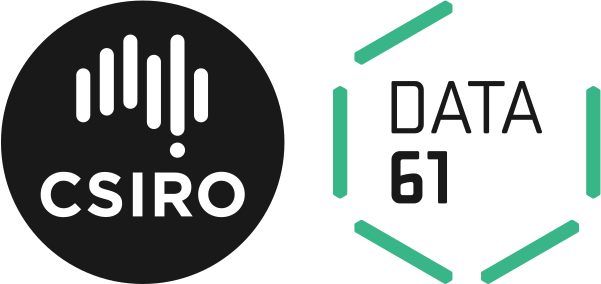qfpl / Applied Fp Course
Programming Languages
Labels
Projects that are alternatives of or similar to Applied Fp Course
Applied Functional Programming Course
This is a new course, so there are going to be rough edges. We invite you to submit issues or pull requests if you find errors or have suggestions on how to improve it.
This course is designed to be run in a class room with instructors, but we would like to make it suitable for self-study as well. Although undertaking this course outside of the workshops will increase the difficulty somewhat, we do not discourage it and invite suggestions on how to make the course more approachable.
If you do attempt this on your own and find yourself completely lost, then you may come find us on IRC on Freenode in #qfpl or #fp-course.
You:
- Have completed, or are capable of completing, the Data61 FP Course.
- Have a few months self-study to your name.
- Want to know how to build larger applications with statically typed FP.
- Are willing to accept that a web application is a sufficient choice.
- Can write the canonical function of type:
Applicative f => [f a] -> f [a]
We:
- Have constructed a sequence of goals of increasing difficulty.
- Have provided a framework within which to apply these goals.
- Have included relevant components of larger applications:
- Package dependencies
- Project configuration
- Application testing & building
- Encoding / Decoding messages (JSON & Binary)
- Persistent storage integration
- App state & configuration management
- Error handling & reporting
- Will utilise both type & test driven development techniques.
- Will explain architectural and design trade-offs when appropriate.
Setup build tools:
Each level is a self-contained Haskell module, containing incomplete, or as yet undefined, data types and functions.
We recommend using a nix-shell, but it is not required.
Cabal
If you're using a version of Cabal that is >=2.0 (use cabal --version to
find out), then you can use the new-* commands and you don't need a sandbox:
$ cd path/to/applied-fp-course
$ cabal new-configure --enable-tests
$ cabal new-build <levelN>-exe
$ $EDITOR src/<LevelN>/README.md
If you don't have a version of Cabal that is >=2.0 then we recommend using cabal sandboxes. They provide a contained Haskell environment for a given project. They're also easy to clean up and any installed packages won't conflict with any other sandboxed project you may be working on.
$ cd path/to/applied-fp-course
$ cabal sandbox init
$ cabal install --only-dependencies --enable-tests
$ cabal build
$ $EDITOR README.md
To delete a sandbox:
$ cd path/to/applied-fp-course
$ cabal sandbox delete
Nix
If you would like to use a Nix Shell:
$ cd path/to/applied-fp-course
$ nix-shell
$ cabal new-build <levelN>-exe
$ $EDITOR src/<LevelN>/README.md
Once that completes you will be in a nix-shell environment with all the
tools required to work through the course.
Stack
Stack yaml configuration is provided and checked by our CI system for successful builds. However the authors do not use stack, so we cannot promise to be able to resolve stack related issues that may arise. Though we will do our best. :)
Please note...
These lessons are designed to be completed with an instructor as part of the Data61 Applied Functional Programming Course. You are of course welcome to clone the repository and give it a try, but you may find the tasks more difficult. If you have any questions we can be contacted in the Freenode #qfpl IRC channel. You can use the free WebChat client.
Subsequent lessons may contain spoilers, don't cheat yourself out of the experience!
There is a README.md file in each Level module folder that will provide
instructions about what the goal is for that specific level.
- Level 01 : Simple hello world web app.
- Level 02 : Define our application spec with types!
- Level 03 : Testing & tools
- Level 04 : Database layer (sqlite-simple)
- Level 05 : Better error handling through ExceptT
- Level 06 : Add some flexible configuration
- Level 07 : ReaderT & refactoring
-- In Development...
- Level 08 : Lenses & "classy mtl" monad transformers
-- Maybe...
- Level 09 : Add session controls (login, logout) and a protected route. So we can have something that resembles application state. For the purposes of modelling the state machine and implementing some property based tests.
Bonus Content
Extension material that doesn't feel like it belongs to the main progression
lives in the bonus
subdirectory.

